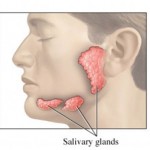Cheek pain, at times, tends to be like one of those unwanted guests who arrive without warning, suggest meekly that they’ll be staying only for a couple of days, overstay, and throughout the entire episode, cause immense trouble and discomfort. Cheek pain causes can range from the medically-driven to the hormone-driven (the latter I will illustrate towards the end of this article). Regarding the former, here are some of the possible reasons for cheek pain and swelling.
Cheek Pain Causes
Here are some of the possible medical conditions, complications or surgical procedures which can result in cheek pain or swelling.
- Improper growth of a wisdom tooth
- Wisdom tooth extraction or removal
- Root canal treatment or procedure
- Dental abscess
- Trigeminal neuralgia (TN)
- Temporomandibular joint disorder (TMJ disorder)
- Extreme stress or anxiety
- Mumps
- Salivary gland disorders
- Jaw joint disorders
- Mouth ulcers
- Sinus infection
- Trauma
- Common cold
Mild swelling of the cheeks, which could be due to a recent injury to the face or a recent surgery, may go away on its own and is typically not a problem. In more serious cases when swelling is accompanied by sudden swelling of the face, lips or tongue or severe breathing problems, you should seek prompt medical care, asthe cheek swelling may be due to a severe allergic reaction.
Cheek Pain in Children
The most common causes of cheek pain have been enlisted above. Usually, as far as the children are concerned, cheek pain is usually the result of a dental problem, infection, abscess, gum infection, tooth extraction, straining of the jaw muscles due to improper chewing, mumps, common cold, sinus infections, etc. In such cases, applying an ice pack to the affected cheek can help in lessening the cheek pain to a certain extent. While doing so, make sure that you wrap one or two ice cubes in a soft hand towel,
tie the ends of the towel together, and then apply the towel to your cheek. Do not apply the ice directly to your skin.
Alternatively, you can also opt for a ‘hot cold’ type of treatment method, i.e. you can alternate between applying an ice pack and a warm heating pad to your cheek. However, there should be a sufficient amount of time interval between applying the ice and then applying the heating pad. Of course, painkillers or medication prescribed by a doctor will certainly help in lessening cheek pain.

Cheek Pain After Dental Work
Experiencing cheek pain after root canal procedures, tooth extraction procedures, etc. is quite a common phenomenon (though it would be a little bit inappropriate to say that it is ‘normal’). Basically, what happens after a tooth extraction procedure is that the surrounding tissue tends to become very tender and sensitive, during the immediate period following the dental surgery.
At times, inflammation can occur and if it spreads to the surrounding areas, it can result in cheek pain or swelling. Sometimes, the
tooth, gums or the surrounding tissue may get infected or may develop an abscess. If not treated in time and if allowed to spread, this can also result in a considerable amount of cheek pain or discomfort. Keeping a few cloves in the corner of your mouth (near the affected cheek) can help in easing the pain to a certain extent. Alternatively, you can chew on a wad of flavored chewing
gum (one that contains cinnamon oil and cloves). If you find that these home remedies do not help in easing your pain or discomfort, you can always consult your doctor, who may then prescribe suitable antibiotics, painkillers, etc.
Other Cheek Pain Causes
On a much lighter and less-serious note, here are a few other perfectly realistic cheek pain causes:
- Improperly or excessively performed facial exercises
- Chewing a piece of gum vigorously and for a long period of time (a cheek pain cause that I can relate to)
- Pestering a girl enough to get slapped by her on the cheek (luckily, something that I cannot relate to!)
Seek immediate medical care (call 911) if your cheek swelling is accompanied by sudden swelling of the face, lips
or tongue; a rash; or respiratory or breathing problems, such as shortness of breath, difficulty breathing, labored breathing, wheezing, not breathing, or choking. These may be signs of a severe allergic reaction. Seek immediate medical care (call 911) if you, or someone you are with, develop a high fever (higher than 101 degrees Fahrenheit) and painful swelling of the jaws, as your
cheek swelling may be related to mumps, a serious viral disease, or another serious infection.

